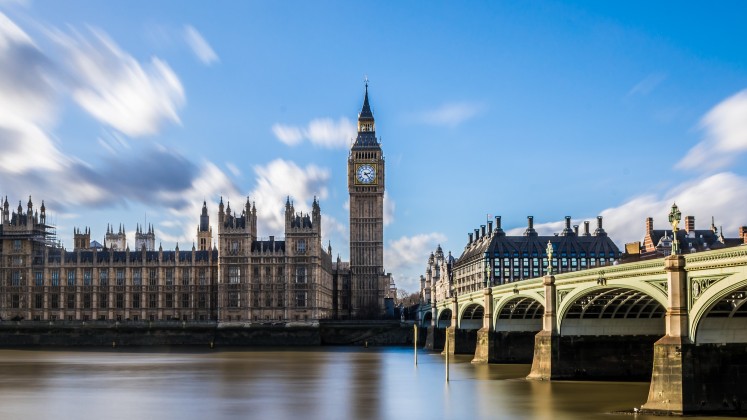
Implementing a strategic approach to the UK’s economic diplomacy offers considerable benefits, including opportunities in international leadership and the furthering of global public goods.
This is the key finding from a new report by the LSE Economic Diplomacy Commission, hosted by LSE IDEAS at the London School of Economics and Political Science (LSE).
The report provides ten actionable recommendations for the UK government in the field of economic diplomacy and details the major opportunities and challenges in the twenty-first century. This is particularly relevant for the UK as it is setting its own trade policies for the first time since the 1970s, following its decision to leave the European Union.
Current opportunities and challenges include the rapid growth of services and digital trade, the stalling of multilateral trade liberalisation, and rising geopolitical tensions.
In this context, the report encourages the UK Government to adopt recommendations within three thematic areas:
- The management and navigation of major trends in the twenty-first century global economy;
- How the UK can do more to support the international system; and
- Institutional changes which will ensure an ambitious and refined economic diplomacy framework for the UK.
Among the report’s cutting-edge recommendations are proposals for the UK to champion plurilateral services trade liberalisation efforts, in order to establish itself as a leading global hub.
Further, it calls for the UK to encourage coalitions of countries to lead the way in climate diplomacy and green markets and for the implementation of consultative bodies, a cadre of economic diplomats, and a central economic diplomacy coordinating office in the Cabinet Office.
The report has been published during a crucial time for the United Kingdom. 2021 will see the UK assume chairmanship of the G7 as well as host COP26, the UN Climate Change Conference.
Implementing the Commission’s recommendations would see the UK contribute to the resolution of the world’s greatest challenges, capitalise on its competitive advantages, and ensure the UK’s success amidst a rapidly changing global landscape.
The Commission has drawn from an extensive evidence base, comprising nine expert evidence sessions plus written submissions, leading academic research and the collective expertise of its 18 Commissioners, consisting of distinguished practitioners and LSE academics.
Commenting, the Chair of the LSE Economic Diplomacy Commission, Professor Linda Yueh, said: “The recommendations will help position the UK optimally in the changed global economy. The aim is to promote commercial openness and the global rules-based system as well as ensuring that trade and investment policies support domestic growth priorities and foreign policy aims such as the environment. By taking this comprehensive approach to economic diplomacy, the UK will be better placed to make the most of opportunities and confront the challenges of the 21st century.”
Commenting, Founding LSE IDEAS Director, Professor Michael Cox, said: “Since its foundation in 2008, LSE IDEAS has been at the forefront of the many debates about major international issues of the day – and, for the UK at least, there can be no issue more important right now than how to position itself in a fast-changing world economy. Launched to help policy-makers think creatively about the often difficult choices open to them in a post-Brexit world, the publication of this Report by one of world’s most innovative ‘Think Tanks’ will hopefully become a major point of reference for serious people searching for serious real world proposals which, taken together, address some of the biggest challenges facing Britain today”
Commenting, Dr Adam Marshall, Director-General of the British Chambers of Commerce (BCC) said: “As we look beyond the twin challenges of Brexit and the pandemic, there is no question that economic diplomacy will need to be at the heart of the UK’s global strategy.
"Chamber business communities, both here in the UK and around the world, will welcome and support many of the Commission’s clear recommendations - and the emphasis that the report places on creating new opportunities for UK firms to succeed.
"Above all, the Commission is right to say that the UK’s future approach to trade needs to fit hand-in-glove with domestic economic choices here at home. A coherent, stable and long-term UK economic strategy is needed for this decade and beyond.”